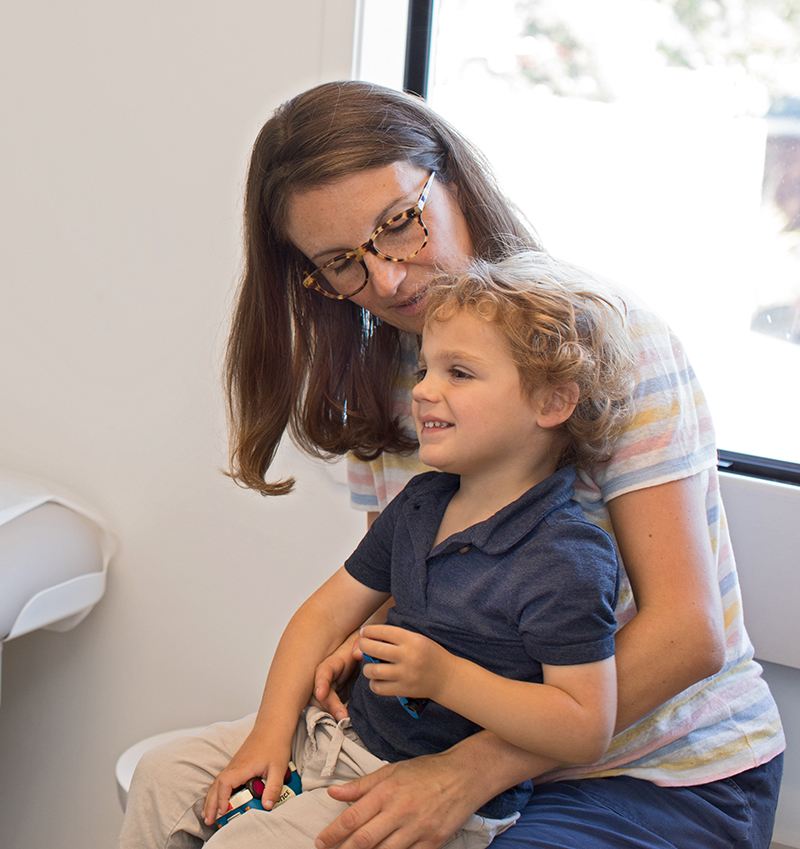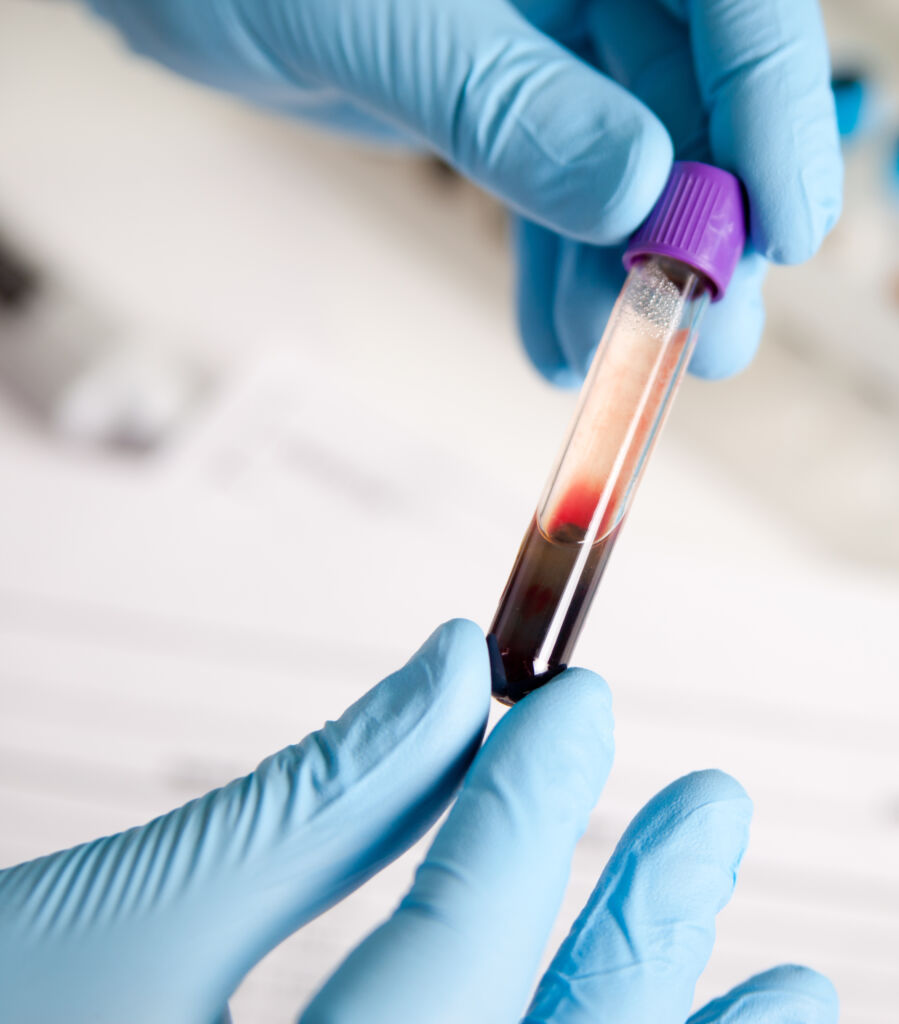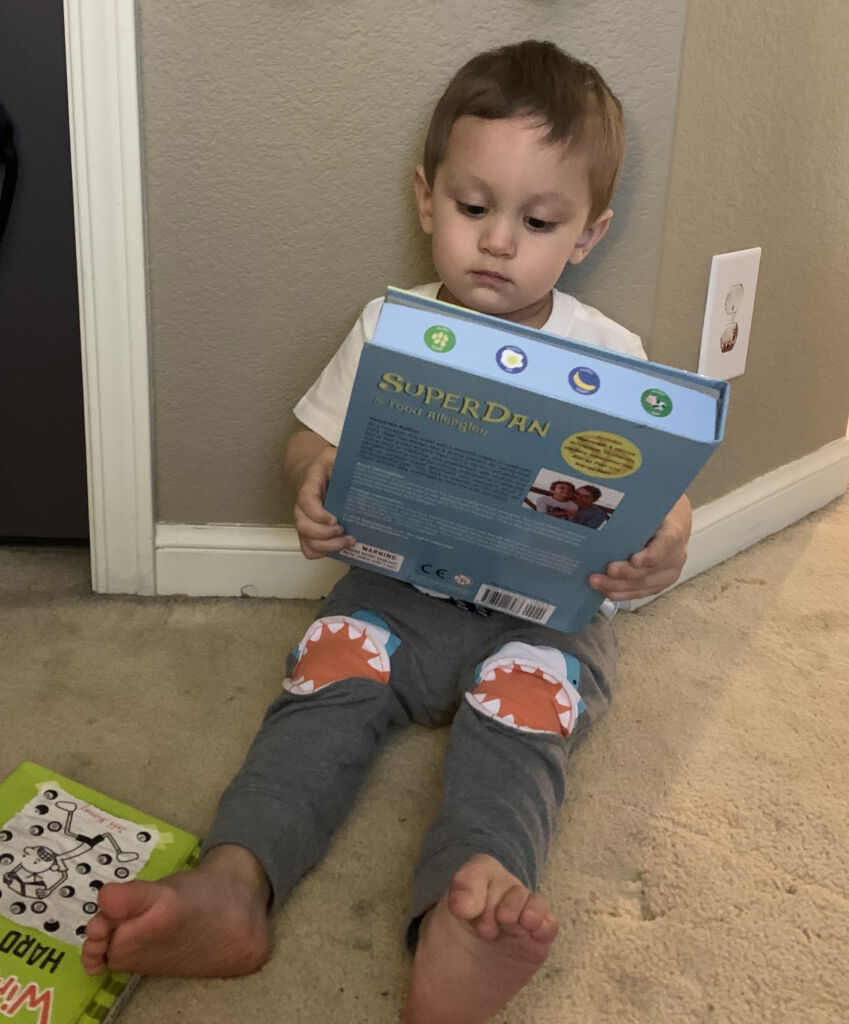
Blood tests are often necessary for a food allergy diagnosis, but they can be very scary for parents and children, what do you recommend to make this easier?
So often parents tell me what a horrific experience they had at a lab or at the hospital with blood testing, or how they were dreading this part of their visit. One of the most rewarding parts of my job is to turn that around and have parents feel relieved and pleasantly surprised that food allergy blood testing in-office at Latitude went so smoothly. I love when I’ve drawn blood from a giggling 10 month old baby — true story, he giggled right through it — and I can see mom literally breathe a sigh of relief.
The fear and anxiety around testing is certainly not limited to the little ones — plenty of school-aged children and teens have built up anticipation, adding to the mix of all the other feelings of apprehension. I realize how hard the process can be on parents and children alike, but, more often than not, I have smiling families when we’re all done!
Tips and recommendations for a smooth food allergy blood testing experience:

- Make sure your little one is hydrated as best you can (it makes a difference!). For babies, this should mean a bottle or breastfeeding an hour beforehand. For older children, water sometime within the hour before the blood draw is usually sufficient.
- Be prepared to hold your child still — it can feel unnatural to hold your child firmly, but it will be safer for everyone.
- Recognize that it can be scary and that the anticipation can be overwhelming.
- For some children, especially when they are older, it’s helpful to be honest with your little one about what to expect and to tell them the truth “this might hurt a tiny bit!”
- As with any medical procedure, be open with the phlebotomist or nurse drawing the blood — make sure to tell her if you have concerns and listen to any instructions and guidance she provides.
- As parents, we don’t ever want to feel like we’re putting our kids in scary situations. Blood draws can be hard on parents so be mindful of that. Your little ones feel your energy. For them, manage your own fear, anxiety, or apprehension as best you can. For some families it may be helpful that the less nervous parent or caregiver is with the child during this appointment.

What is your professional background as a specialist in pediatric phlebotomy?
In 2012, I was on a completely different career path and found myself with a unique opportunity to switch gears and explore a career in the medical field — a field I always felt I belonged. I took a phlebotomy course, and as it turned out, I was talented at drawing blood and found it very satisfying. I was offered a job at the lab where I did my training and dove in head first to an environment that was fast-paced and left no room for lack of confidence or second guessing, especially working with the youngest and smallest patients. I didn’t know it at the time, but being a phlebotomist and working in that particular patient service center would open doors for me that I never knew existed. It would be more fulfilling than I could have imagined.

What is your connection to food allergies and how does that help you support food allergy families at Latitude?
When I first met Kimberley Yates and the Latitude team, I heard “food allergy” and my ears perked up. My one-year-old was newly suspected of having a peanut allergy and I wanted to learn more about what that meant. I got to know some of the folks at Latitude and felt strongly that I wanted to be involved.
As I navigated my own experience with my son’s allergic reactions, it became apparent that what Latitude was doing far exceeded the clinical experience our family was offered anywhere else. With our large HMO, we had seen an allergist who wasn’t very warm, didn’t offer anything in terms of answers or guidance — except to avoid and check back in a year — and in the middle of the reactions and the half-answers, a terrible lab experience. It helped me realize, as a parent and as a phlebotomist, there had to be something better. Latitude was that something. Latitude is providing patients the experience and the answers all food allergy parents, like myself, desperately need.
Today, as part of the team at Latitude, if I can alleviate any of the apprehension that comes with a blood draw, for patients or parents, I’ve done my job.